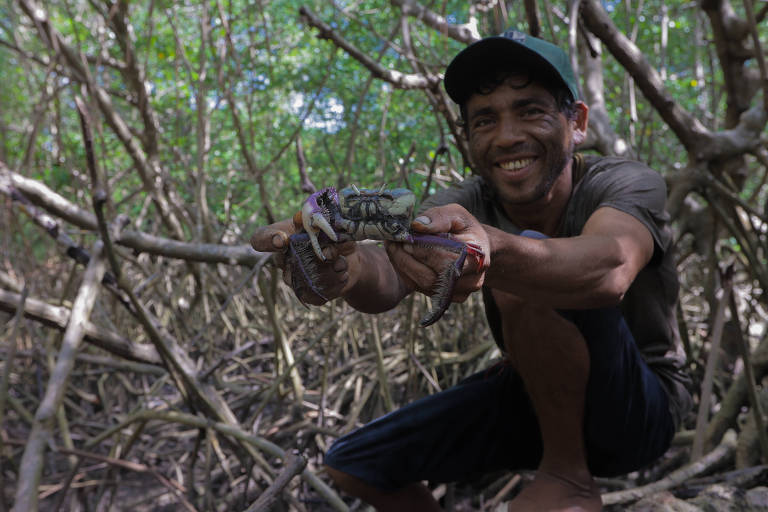Unlike much of the Brazilian coast, mangroves in the Northern region remain preserved. This ensures the necessary ecosystem for the survival of the uçá crab, the main commercially valuable species in the country.
The preservation of mangroves exists due to low population density and the presence of conservation units, such as Extractive Reserves (Resex), where traditional communities live and help maintain the intact ecosystem and crustacean. The uçá crab is an endemic species of mangroves, distributed from Florida, USA, to Santa Catarina, Brazil. According to Tânia Marcia Costa, an associate professor at the Institute of Biosciences of Unesp (São Paulo State University), São Vicente campus, the adult crab has, on average, a carapace width of 6 cm or more, and the color varies between blue, green, yellow, and white, depending on age.
Since 2003, the government has created the so-called crab fishing ban, a period during which capturing, transporting, trading, or any activity involving the animal is prohibited, subject to fines ranging from R$ 700 to R$ 100,000. The period varies—influenced by tidal and lunar cycles—but in the North, it usually occurs from January to March. The report was in Bragança, Pará, a week before the ban period, which this year occurred in three parts: from January 12 to 17, from February 10 to 15, and between March 11 and 16.
The uçá is classified as near threatened by ICMBio, placing it in a less concerned situation for national conservation policies. However, the degradation of mangroves in the South, Southeast, and Northeast and the overexploitation of the resource have drastically reduced populations. For this reason, a federal ordinance protecting the species was created in December 2020.
Since the text is valid until the end of 2024, Silva hopes that a new ordinance will be launched for the next year. "Crab fishing is the main economic base of the extractivist population, hence the reason for this control to avoid problems with the natural resource in the future."
